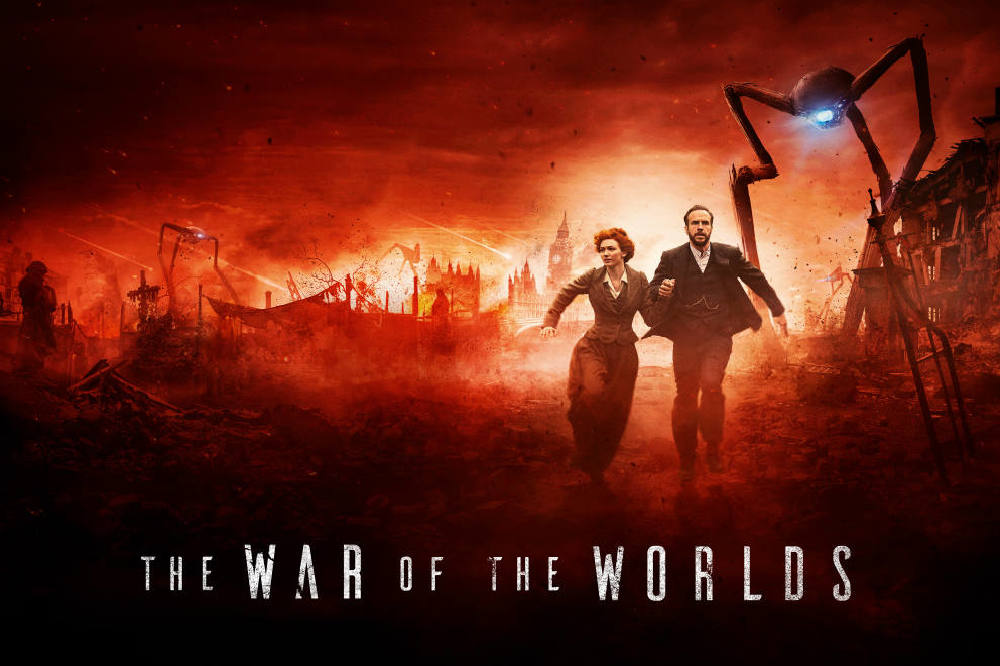Sci-fi lovers gathered around their TVs in anticipation last night (November 17th, 2019) for the airing of the first episode of the BBC's new serial adaptation of H.G. Wells' The War of the Worlds - and we were most certainly not disappointed.

The War of the Worlds (BBC) / Photo Credit: BBC Pictures
It comes more than sixty years after the acclaimed film version which set the scene in California instead of London, and fourteen years after Steven Spielberg's divisive reboot starring Tom Cruise. But whatever you thought of either of those movies, it's safe to say that this new re-telling is the one we've all been waiting for.
In the spirit of this pioneering story, here are seven fascinating facts about The War of the Worlds that you definitely need to know:
1. It was the creation of "alien invasion" literature
While invasion literature was already popular at the time thanks largely to the iconic 1871 novel The Battle of Dorking by George Tomkyns Chesney, and alien visitation had previously been written about in Voltaire's Micromégas and Kurd Lasswitz's Two Planets, Wells is largely credited as being the first to put these two themes together. Not only that, but The War of the Worlds also instigated several widely used Mars tropes such as it being the home of a more advanced civilisation and the planet being almost at the end of its life.
2. It made the term "Martian" an alien synonym
Most of us are aware that the term "martian" relates to a living organism from Mars, but since The War of the Worlds it has largely entered vernacular as simply another word for alien, indeed as a description of something not of thi s world. It is important to recognise, however, that Wells was not the inventor of the word, and that it was actually first coined by American astronomer Percival Lowell.
3. The radio adaptation caused public panic
It seems that by 1938 there was still plenty of people who hadn't read the story, and thus when it was dramatised as part of a radio anthology called The Mercury Theatre on the Air, directed and narrated by Orson Welles, it caused something of a public panic with hundreds of listeners believing that there was indeed an alien invasion thanks to the "breaking news" style intro. There was rather an angry response by the media afterwards - and the say it's the millenials who are easily offended!
4. It's an influence on real science
Even though The War of the Worlds is very, very fictional and we are not currently worried about being invaded by Martians, it still became something of an influence on many later scientists. Robert H. Goddard was inspired to invent the world's first liquid fuelled rocket which ultimately enabled the Apollo 11 moon landing of 1969.
5. It was inspired by colonialism
At a time where invading other countries with a less advanced civilisation wasn't really thought of as big deal, Wells wanted to make people think about how it would feel if the same thing happened to them. He'd actually had a discussion with his brother about the British colonisation of Tasmania which had a disastrous effect on the indigenous population and was inspired to write the novel from there. It's safe to say he succeeded in putting across an important message with chilling effect.
6. Wells was taught by Huxley
While he was training to be a science teacher, Wells was taught by none other than the famous Darwinist Thomas Henry Huxley who, as well as being a prominent figure in evolutionary theory, also happened to be the grandfather of Aldous Huxley, writer of the iconic dystopian novel Brave New World.
7. There's a War of the Worlds statue in Surrey
A tribute to H.G. Wells and The War of the Worlds stands in Crown Passage near Woking railway station in the form of a 23-foot tripod sculpture. It's called The Martian, and was designed and built by the metal sculptor Michael Condron who themes a lot of his work around science.

